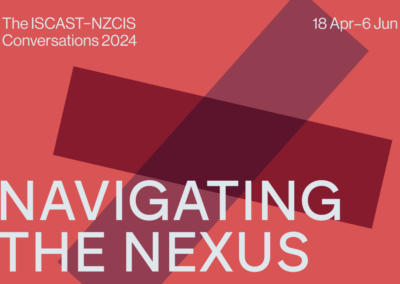ISCAST/NZCIS Conversations started on April 22nd 2021 and went through to July 1st. Each evening began at 8.15pm NZT and concluded at 9.30pm NZT.
The 2021 series covered a range of fascinating topics.
Since 2020, ISCAST and New Zealand Christians in Science have run the Conversations series, with an aim to promote a dialogue between the sciences and the Christian faith. Experts are invited to speak on their topic, which is then followed by a Q&A and discussion.
Speakers and Topics
Needing God and Christian Flourishing
22 April: Dr Christa McKirland
I’m interested in exploring Basic Psychological Need Theory which is a part of Self-Determination Theory, a metatheory about human motivation. BPNT proposes three universal psychological needs: relatedness, autonomy, and competence. Given my own work in analytic philosophy, theology, and biblical studies regarding fundamental need, I’m interested in the potential overlap between BPNT and the need for the grace of God’s personal presence, as well as points of dissonance.
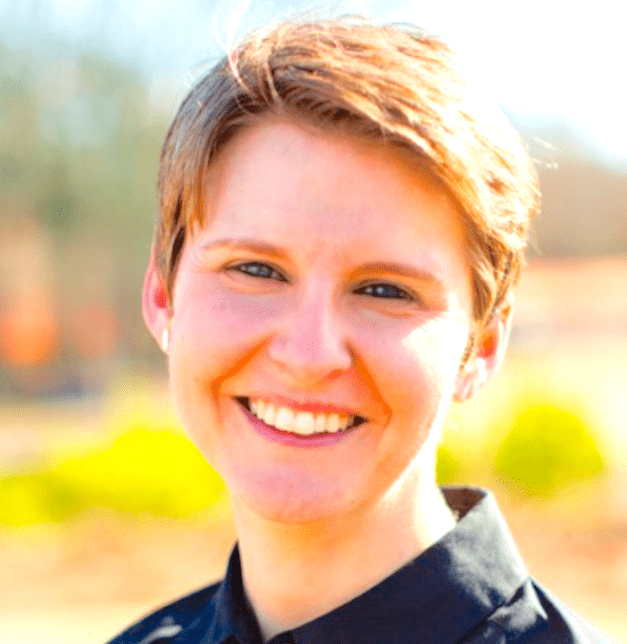
Biography
Dr Christa McKirland is a lecturer in systematic theology at Carey Baptist College. With degrees in philosophy, bible exposition, and systematic theology, she enjoys bringing these disciplines together in order to speak into what it means to flourish. Ultimately, to be a flourishing human is bound to God’s personal presence and thus her doctoral work focused on the concept of fundamental need and how human beings are uniquely suited to need God in a particular way.
Christa is the Executive Director of Logia International, an organisation that encourages women to pursue postgraduate divinity education for the sake of the academy and church. Logia seeks to highlight the excellence of women who are already established in their fields, while also developing the next generation of scholars who will lead the way in theology, philosophy of religion, and biblical studies.
Are We Slaves to Our Genes?
29 April: Professor Denis Alexander
Over the past few centuries the pendulum has constantly swung between an emphasis on the role of either nature or nurture in shaping human destiny, a pendulum often energised by ideological considerations. In recent decades the flourishing of developmental biology, genomics, epigenetics, and our increased understanding of neuronal plasticity, have all helped to subvert such dichotomous notions. At the same time the field of behavioural genetics continues to extend its reach into the social sciences, reporting the heritability of such human traits as aggression, sexual orientation and religiosity. In parallel the human genome continues to be presented as the ‘blueprint of life’, encoding human destinies. There are therefore many continuing challenges today to notions of human freedom and moral responsibility with consequent theological implications. This presentation will critically discuss these challenges.
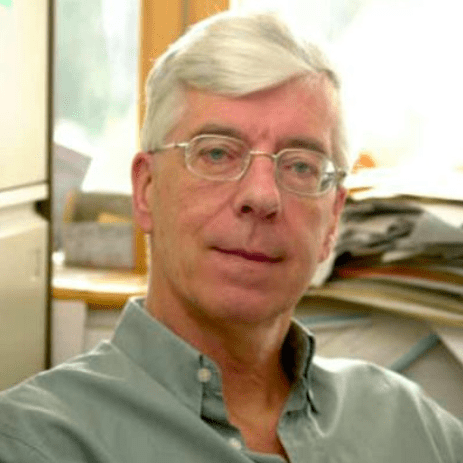
Biography
Professor Denis Alexander is a Distinguished Fellow of ISCAST and Emeritus Director of the Faraday Institute of Science and Religion at St Edmund’s College, Cambridge. He is a molecular biologist with 40 years’ experience and, for a decade, was editor for the journal Science and Christian Belief. In addition to his scientific publications he has published several books reconciling mainstream science with the Christian faith.
Randomness and God’s Justice
06 May: Dr Jacob Martin
Randomness is a fruitful concept in science providing insights into atoms, nonlinear systems and mathematical modelling. Randomness has also been used to justify a variety of theological and philosophical positions. In this conversation, I will discuss connections with purpose, free will and God’s justice. Finally, through a reflection of the soldiers gambling for Jesus’ clothes at the cross we see that God does not reveal himself through random processes but through the person of Jesus Christ.
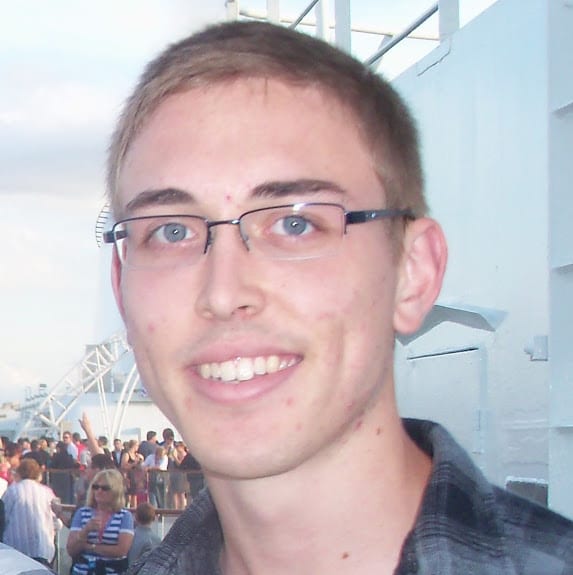
Biography
Dr Jacob Martin is a Research Fellow at Curtin University in Western Australia. Jacob completed a Bachelor of Science in Chemistry and Physics followed by Masters in Chemistry at the University of Auckland (New Zealand) as well as a PhD in Chemical Engineering at the University of Cambridge. Jacob has strong interests in renewable energy, pollution reduction and carbon nanomaterials. Jacob is currently studying the formation of combustion carbons and disordered carbon materials.
Science and Faith in the Marketplace
13 May: Rev. Dr. Chris Mulherin
Each year, ISCAST speakers engage with thousands of people in “the marketplace”—in churches, and especially with school students. Why do we go into schools, and what is our message? In this conversation, ISCASTExecutive Director Rev. Dr Chris Mulherin will present the sort of talk that he regularly gives to students. It includes a taste of the wonders of science and a touch of philosophy, as well as pointing to the important part Christianity played during the scientific revolution. Chris will also share ISCAST’s plans to create online, religious education material using his book Science and Christianity: Understanding the Conflict Myth as a framework for more detailed inquiry-based learning in secondary schools. Finally, our New Zealand friends will respond and make some comments on what is happening in the marketplace on the other side of the Tasman.
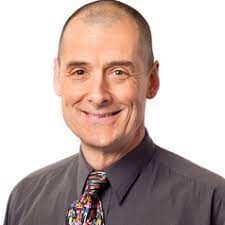
Biography
Rev. Dr Chris Mulherin has a background in engineering and theology, and is an ordained Anglican. He teaches philosophy two days a week and is Executive Director of ISCAST in the rest of his time. More details about Chris can be found here.
Consciousness: Mechanisms and Spiritual Implications
20 May: Dr Rebecca Pullon
The mechanisms of consciousness remain difficult to understand. In this presentation, I will discuss my work in brain-wave monitoring during anaesthesia which has allowed insight into which parts of the brain disconnect and reconnect first at the transition to and from unconsciousness. The fact that consciousness can be manipulated raises questions about what it means to be a spiritual human person. Although our clinical trials have been motivated by the desire to reduce delirium after surgery in elderly patients, also invokes questions of how to interpret instances where cognition is permanently impaired, such as with dementia. Come ready to think about consciousness and its spiritual implications.
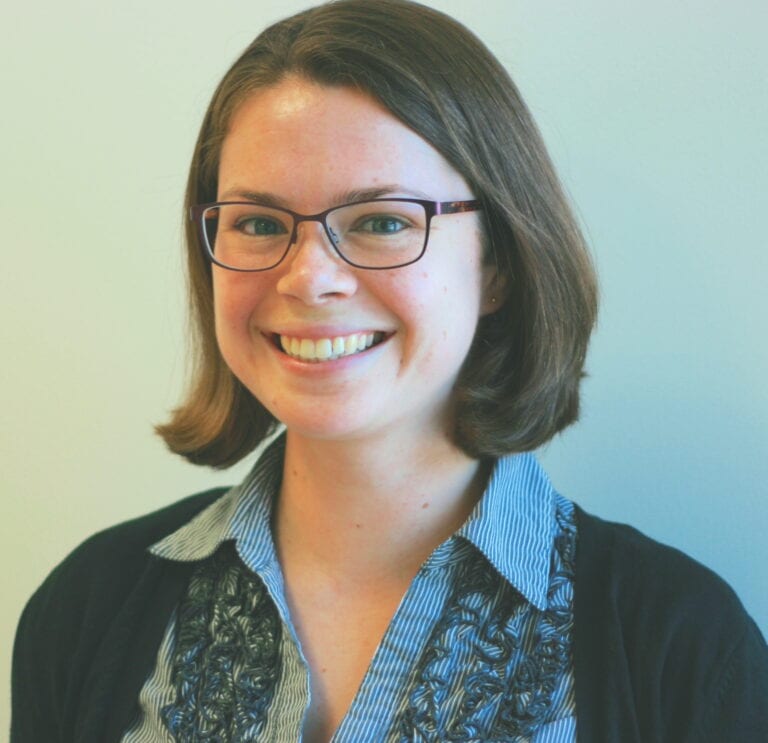
Biography
Dr Rebecca Pullon specialises in biosignal processing—getting useful information from signals from the human body. She did her DPhil at Oxford University in maternal vital-sign monitoring and has since been working in anaesthesia at Waikato DHB (NZ), primarily with electroencephalogram (EEG; brain-wave) signals. Rebecca enjoys identifying patterns in data and coming up with creative ways to visualise information. Last year Rebecca forayed into theology study and is now keen to combine her science background with theological questions.
What is Science? And What is it For?
27 May: Professor Tom McLeish
This discussion will take a very different approach to science and Christianity than the all too frequent ‘conflict’ notion, and instead explore what it might mean to think of science as a gift from God, equipping humans to fulfil a task within our vocation of discipleship. What is science for, within the Kingdom of God?
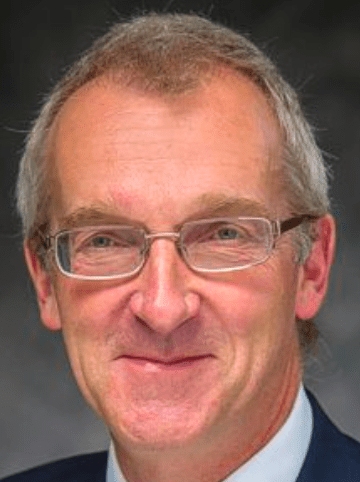
Biography
Professor Tom McLeish, FRS, is Professor of Natural Philosophy in the Department of Physics at the University of York, England, and is also affiliated to the University’s Centre for Medieval Studies and Humanities Research Centre. His scientific research in soft matter and biological physics, draws on collaboration with chemists, engineers, and biologists to study relationships between molecular structure and emergent material properties, and was recognized by major awards in the USA and Europe. He currently leads the UK ‘Physics of Life’ network, and holds a 5-year personal research fellowship focusing on the physics of protein signaling and the self-assembly of silk fibres. Other academic interests include the framing of science, theology, society and history, and the theory of creativity in art and science, leading to the recent book The Poetry and Music of Science.
Ancient Light: Illuminating Science and Theology
03 June: Sarah Beattie
Heisenberg claimed that to progress with quantum mechanics and interpret quantum reality, physicists had to learn how to both ask the right questions and get into the spirit of quantum theory. This presentation will consider whether we might also have to learn how to ask the right questions and rediscover how to get into the spirit of biblical narrative in order to interpret the biblical perspective of reality in the 21st century. It will use the concept of ancient light in both cosmology and Scripture to offer some suggestions about how developments in cosmology and astrophysics can help rather than hinder this learning and how science and theology might interact within an interpretive stance of informed receptivity. This is a stance that recognises, firstly, the limitations of language in the articulation of both scientific and biblical perspectives of reality. Secondly, that an understanding of both perspectives may require a radical departure from familiar forms of explanation in order to extend the perceived boundaries of the thinkable.
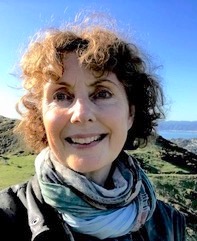
Biography
Sarah Beattie has a BEd, Graduate Diploma in Theology, MA in “Aspects and Implications of Biblical Interpretation” and is currently finishing a PhD in Hermeneutics. Over the last 20 years she has facilitated, and written material for, small group Bible and theological study. The increasing challenges to biblical testimony and Christian tradition, arising from perceptions of the impact of science on Christian belief, led her to postgraduate research; her PhD thesis focuses on the interpretation of biblical narrative in the 21st-century world. Although her background is in the Arts she believes that all Christians are now, to some extent, Christians in science due to the rapid developments in, and growing dependence on, science and technology. This should not, however, be a threat to traditional belief but rather offers an exciting opportunity to explore how science can contribute to a deeper understanding of biblical reality.
Why are Pseudoscientific Conspiracy Theories So Popular Among Christians?
10 June: Dr Jon Clarke
Pseudoscience and conspiracy theories have been part of Euro-American culture for centuries. What was once limited to the province of poorly printed pamphlets handed out at airports and street corners, has now, due to the internet and social media, extended to reach hundreds of millions. That, in combination with the previous Trump presidency in the United States and the global pandemic has pushed the potential of these dangerous ideas to reach billions.
Long before the pandemic or Trump I have had, on occasion, to defend vaccination programs or the Apollo missions to my fellow Christians. However, I have been shocked at the degree to which self-identified evangelical Christians, especially in the US and to a lesser degree in Australia, have succumbed to these unsupported ideologies. In this session we want to hear personal stories and experiences and discuss how we, as Christians, should respond to the current pandemic-related conspiracy theories and pseudoscience.
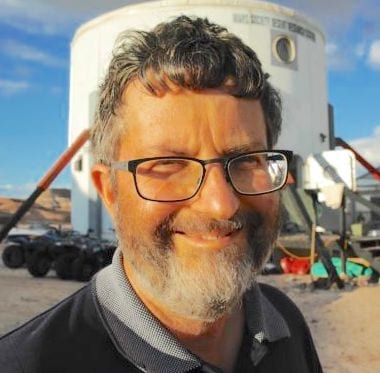
Biography
Dr Jonathan Clarke is a geologist who has worked in the minerals, education, and government sectors. He has undergraduate degrees from the University of Tasmania and a PhD from Flinders University. His interests include sedimentology, diagenesis, landscape processes, and regolith geoscience, and he has applied these to minerals exploration, salinity management, and groundwater. Jon is also interested in planetary science, in particular the geology and geomorphology of Mars and how planets such as Mars might best be explored. He is currently working on spacesuit design for Mars exploration. Jon is Vice President of the Mars Society Australia, is a fellow of ISCAST, and is an ISCAST Director.
Does Methodological Naturalism Lead Us to Accept Ontological Naturalism?
17 June: Hans Weichselbaum
Methodological naturalism (MN) is a defining concept of science. It stipulates that science excludes the supernatural in its explanations and theories. The supernatural is not denied, but simply ignored when practising science. On the other hand, ontological naturalism (ON) is a worldview that denies anything beyond the natural world, including God. The natural world is all there is.
The term MN was coined only recently in 1986, however, the principle of MN goes all the way back to the Middle Ages when ‘natural philosophers’ (the forerunners of today’s scientists) were keen on understanding what kind of creation God had made and how God was at work through creation. God is seen as acting through secondary causes which we can identify as the laws of nature. Atheists like to claim that MN slowly evolved over the last few centuries as a result of an increasing displacement of religious thinking through our scientific understanding of the world.
Shortly after its inception, MN has come under attack from two sides. First, supporters of the Intelligent Design movement and some Christian philosophers claim that MN restricts the practice of science. Furthermore, it is a slippery slope which leads one to ON. The second line of criticism comes from the atheist camp: a number of philosophers and scientists regard MN as an unnecessary assumption which only obstructs science. We should instead adopt the real thing, namely ON. Note that both critiques predict an inevitable slide from MN to ON.
Others have suggested a form of provisional methodological naturalism (PMN) which allows the scientist to study (and confirm or refute) supernatural phenomena. This requires a sharp demarcation between the ‘natural’ and ‘supernatural’ which is difficult to nail down. Science explains observed phenomena through natural causes. Having established a ‘natural’ cause, however, does not rule out the possibility of supernatural causation, for example by means of overdetermination.
Anybody denying the supernatural realm has already rejected MN and adopted ON as the stronger form of naturalism. The theist and, more importantly, the agnostic who accepts MN will find no evidence or logical reason for abandoning MN in favor of ON.
The perceived conflict between faith and science is one of the main reasons for young people to turn their back on the church. Science has given us enormous powers and seems to be qualified for explaining any phenomenon we encounter. As Christians we should perceive God as the ultimate cause of any observed event, irrespective of whether or not the current status of science can attribute it to a natural cause.
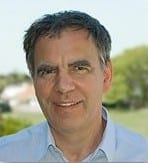
Biography
Hans Weichselbaum is originally from Vienna and has worked in South Africa as a metallurgist and chemist, specialising in gold cyanidation, before moving to Auckland. In NZ he has worked as a soil chemist, and also has a business importing educational toys. His interest in the philosophy of science has developed through a master’s degree and currently a PhD. He also has a passion for photography and digital imaging.
Must Christians be Creationists? Must Scientists Be Evolutionists? A Methodological and Theological Answer
24th June: Doru Costache
Creationism and evolutionism are ideologies that spring from a wrong understanding of creation and a wrong understanding of evolution. To choose between creationism and evolutionism is not the proper way for Christians and scientists to interact; it is proper to maintain appropriate boundaries. Description (such as evolutionary science) and interpretation (such as the theological doctrine of creation) are methodologically different. As such, they cannot be in conflict. But more distinctions are in order! The theory of evolution (a scientific description) is not the same as evolutionism (an ideological interpretation). Nor is the Christian doctrine of creation (a theological interpretation) the same as creationism (an ideologically conditioned description). I submit that creationism and evolutionism are methodologically problematic: one describes what it should interpret, and the other interprets what it should describe. And while there can be no common ground between the ideologies of creationism and evolutionism, the Christian tradition makes possible a harmony between the doctrine of creation and the theory of evolution. It is possible for theology and science to cross paths in friendly and constructive ways. The solution is hidden in several common Christian doctrines, which I shall briefly review.
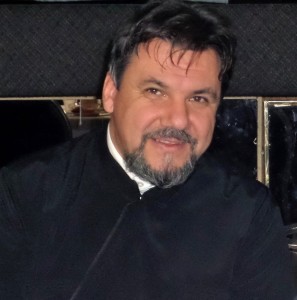
Biography
Rev. Dr Doru Costache is the new ISCAST Research Director. He was trained at the Radu Vodă Seminary, Bucharest, Romania, and has undertaken doctoral studies in Orthodox theology at the University of Bucharest. His doctoral thesis was on the anthropic cosmological principle interpreted from the viewpoint of a patristic theologian, Saint Maximus the Confessor, and a neopatristic theologian, Father Dumitru Stăniloae. He has over twenty years of tertiary teaching experience and was the Durham International Senior Research Fellow at the Institute of Advanced Study, the University of Durham in 2018. He has published numerous articles and books.
Can We Infer Purpose in Evolution?
01 July: Dr Zachary Ardern
The claim that evolution is strictly logically compatible with some form of divine superintendence is relatively uncontroversial outside of anti-theism on one side and anti-evolutionism on the other. But, is an inference to purpose in evolution the result simply of a “will to believe,” or could it be a justified inference with some connection to scientific evidence? And if it could be justified, then how? Firstly, I discuss the possibility of inferences to purpose being complementary to rather than competing with evolutionary explanations, following work from Rope Kojonen and David Glass. Then I focus on specific examples of recent developments in evolutionary theory which might fit with such inferences.
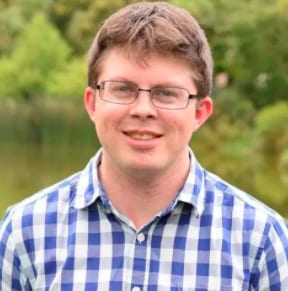
Biography
Dr Zachary Ardern is an evolutionary biologist using microbial genome and gene expression data to answer fundamental evolutionary questions and to further understanding of microbial genomes. Originally from New Zealand he is currently a junior group leader at the chair of Microbial Ecology at the Technical University of Munich. Zach is a reviewing editor for the new Cambridge University Press open access journal “Experimental Results”.

